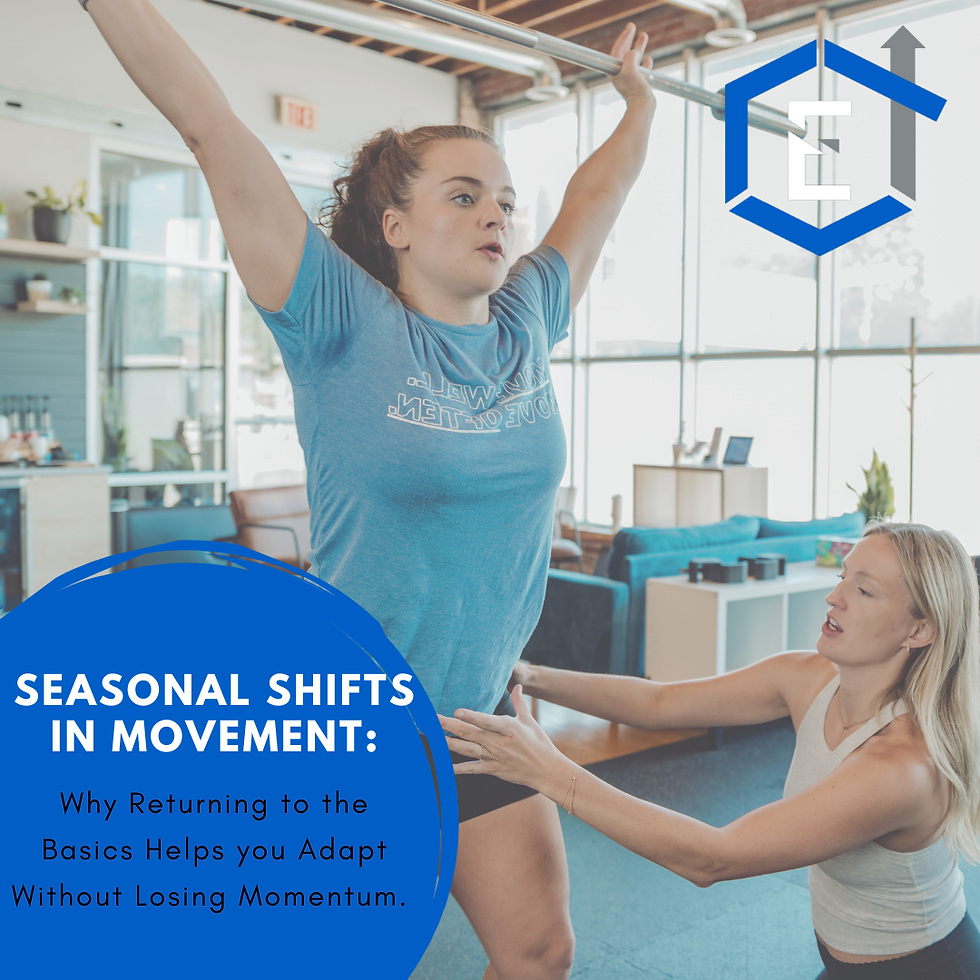Menopause & Movement
- Dr. Kristin Wright
- Oct 17, 2023
- 3 min read
After having multiple conversations in the clinic surrounding how to handle the difficulties of menopause, I decided to dig into this topic deeper. I was recommended to read a great book by Dr. Jen Gunter called Menopause Manifesto. If you haven’t read this yet – I highly suggest it!
Menopause is a natural biological process that typically occurs in the late 40s or early 50s, and it comes with a wide range of physical and emotional changes. This, for years, has been overlooked by the medical system and has been brushed off by many, leaving women to figure it out for themselves and feel alone and “broken” in the process. In recent years we are lessening the stigma with talking about it, and there has been a lot of research done with how to handle this transition. We will discover many topics in future blogs, but there is one powerful tool that can help women navigate through this transition with grace and vitality: movement. As Dr. Jen Gunter eloquently explains in her book "The Menopause Manifesto," exercise and movement play a profound role in women's health during menopause.
NOTE: this following information is just that, information. KNOWING this information guides our thought process when we start to consider factors in each plan for each individual woman.
Menopause occurs when a woman's ovaries stop producing eggs and her levels of estrogen and progesterone, two key reproductive hormones, decline significantly. These hormonal changes can lead to a variety of physical and emotional symptoms, including:
Hot flashes and night sweats.
Mood swings, anxiety, and depression.
Sleep disturbances and fatigue.
Vaginal dryness and sexual discomfort.
Changes in metabolism.
Research shows again and again that physical movement offers numerous benefits that can help alleviate the symptoms and challenges associated with menopause. Let's explore these benefits in detail:
Hormonal Balance: Regular physical activity can help stabilize hormonal fluctuations by stimulating the release of endorphins, which are natural mood elevators. Exercise also promotes the production of feel-good neurotransmitters like serotonin, which can reduce anxiety and depression commonly experienced during menopause.
Hot Flash Relief: Many women experience hot flashes during menopause, which can be uncomfortable and disruptive. Exercise can help regulate body temperature and reduce the frequency and severity of hot flashes. It can also improve blood circulation and enhance the body's ability to cool down.
Bone Health: Estrogen plays a crucial role in maintaining bone density, and its decline during menopause can lead to an increased risk of osteoporosis. Weight-bearing exercises (resistance training) can help strengthen bones and reduce the risk of fractures. Strength training exercises are particularly effective in boosting metabolism and maintaining muscle mass.
Stress Reduction: Menopause can be a stressful time for many women, but exercise provides an excellent outlet for managing stress. Physical activity triggers the release of stress-reducing hormones, helping women better cope with the emotional challenges of menopause.
Quality Sleep: Sleep disturbances are common during menopause, but exercise can promote better sleep quality. Engaging in regular physical activity can help regulate sleep patterns and improve overall sleep duration.
As everyone knows, we will die on the hill of promoting movement as a powerful tool that can help Every. Single. Human. But hey.. we know this is all easier said than done. Every single woman deserves individualized care and guidance when it comes to what type of movement and how much is right for them, as well as learning to listen to their body and adjust accordingly.
These are no where near rigid guidelines. As always, a plan should be fluid and dynamic according to what an individual needs. There is no “one size fits all” approach. Every single human that walks through our doors gets a different plan according to what makes sense for them. Come see for yourself.




Comments